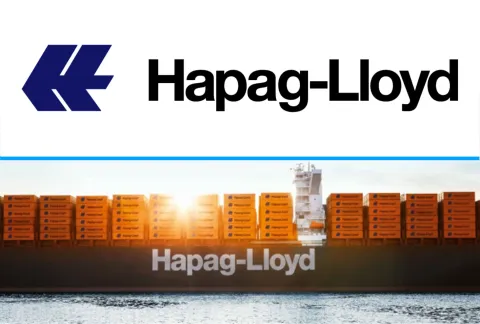The Business
Hapag-Lloyd is a global liner shipping company, operating a fleet of 239 ships and recognized as a digital leader in their industry. They offer 121 liner services, connecting more than 600 ports on all continents, and transporting 12 million TEU (Twenty-foot Equivalent Unit) per year.
Hapag-Lloyd has around 13,000 employees in 388 offices in 129 countries.
Hapag-Lloyd’s Online Business Portal provides their customers with a single-access-point, e-commerce platform to manage their transport needs and receive real-time transport data, with a mobile app that puts that data in the palm of your hand.
Strategic IT
Headquartered in Hamburg, Hapag-Lloyd’s IT function has strategic responsibility for the development and support of Hapag-Lloyd’s technology-enabled business platforms and services supporting all process steps and spanning the whole transport chain including the online business with all customers and partners.
Hapag-Lloyd’s HL Procedure Model is a full-lifecycle software development process that has for many years supported and aligned all teams involved in the development and evolution of Hapag-Lloyd’s strategic IT solutions i.e. more than 400 IT professionals across multiple locations as well as the business stakeholders.
To maintain their competitive edge, Hapag-Lloyd is proactively transforming to a product-centric development organization that is able to maximize business responsiveness and value by leveraging lean-agile development approaches.
The Challenges
Hapag-Lloyd identified the following challenges to align their existing Procedure Model with their strategic transformation goals:
- The Procedure Model has served the organization well, but has proven challenging to maintain and update over time
- The current transformation requires a major overhaul of the HL Procedure Model to align with the product-centric organization and lean-agile development strategy
- While the established Hapag-Lloyd Procedure Model contains wealth of proven practice guidance that has and continues to serve the organization well, it is hard to extract this from the other aspects of the Procedure Model that now require transformation
- The HL Procedure Model is intended to be tailored to meet specific project needs, but lack of tooling and proactive help for this leads to the perception of it being too heavyweight and constraining to meet today’s development needs and paradigms
- The HL Procedure Model supports iterative and incremental development, but there is a perceived tension between its lifecycle phases and a truly lean-agile value delivery approach.
The Goals
Hapag-Lloyd was determined to avoid a like-for-like replacement of their existing process framework with a monolithic off-the-shelf framework, as this would not solve any of their challenges relating to flexibility and maintainability.
Hapag-Lloyd knew they needed a solution that could flex and grow with their business needs, to meet tomorrow’s challenges as well as today’s.
They needed the ability to combine enablement in proven professional practices with the freedom for product value streams and value delivery teams to select which practices they require, and to adapt them to exactly fit their specific circumstances and needs.
Their search for a strategic solution to these challenges led them to the Essence standard and to IJI’s Practice Library of Essence-based lean and agile practices.
What Essence offered them was the ability to extract their own strategic practices from their existing Procedure Model and to deploy them in a form that allows them to be freely combined with their new lean and agile practices.
This same “essentialization” process also allows their new practices to be deployed in a form that enables teams to engage with them and to learn, master and use them to improve and adapt their way of working in rapid time.
The Engagement
While this all looked like the perfect solution on paper, Hapag-Lloyd wanted to better understand the real life implications and assess the capabilities of the tooling to support it, including IJI’s Practice Workbench. So they embarked upon an initial piece of work to prove the viability of their vision by developing an initial Minimum Viable Product (MVP) of an essentialized Hapag-Lloyd Practice Library.
Hapag-Lloyd engaged IJI’s expert consultancy services to coach them in refining the vision for the MVP, outline the Practice Library architecture, select candidate reusable practices and design the new practices. They also made extensive use of IJI’s Practice Workbench tool and Practice Packs to rapidly build and deploy the MVP Practice Library, again with guidance and support from IJI. The verdict: “IJI have been the perfect partners, listening closely to our needs, and providing clear strategic guidance, backed up with unrivalled practical experience, an impressive ability to respond and to execute, and mature and powerful supporting practices and tools”.
The Outcome
Hapag-Lloyd is now using the resulting essentialized practices and the unique “poker cards” generated from Practice Workbench as part of their agile training and coaching program, enabling teams to rapidly assimilate, own and execute their new lean and agile practices.”
“We couldn’t be more pleased with the outcomes. Not only have we proved the ability to deliver on our original vision, but the more we work with Essence and with IJI, the more potential and power we discover in the Essence-based approach.”
Dr. Bastian Dölle, IT Director, Hapag-Lloyd.
They are also already using the Essence Kernel and its poker cards to demonstrate to leadership the power of a simple, universal framework to provide transparency of approach, health and status across any and all types of endeavor, irrespective of exactly which practices they have adopted and adapted.
Moving Forward
Hapag-Lloyd is now pressing full-steam-ahead with the essentialization process, in partnership with IJI, and closely aligned with the agile transformation, training and coaching activities. Hapag-Lloyd is also actively evaluating IJI’s next-generation practice deployment and activation platform, which provides proactive cloud-based team support, which Hapag-Lloyd sees as strategically important in their increasingly virtualized business environment.
Case Study End


